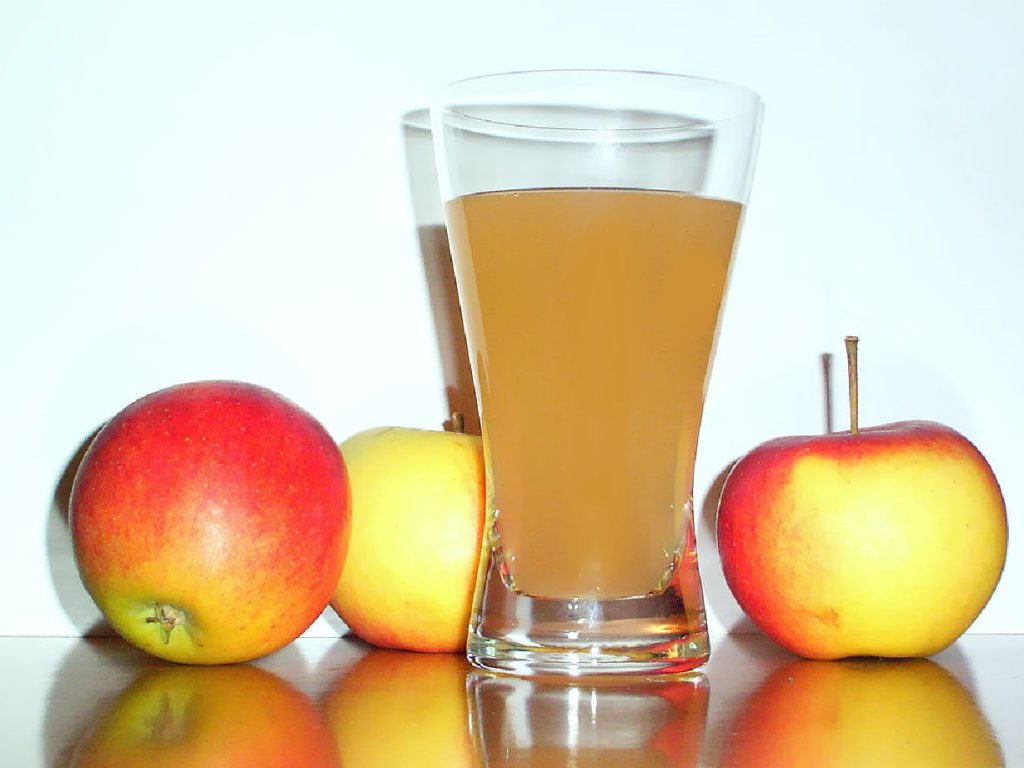You may think when you drink apple juice you drink vitamin C but how much vitamin C is in apple juice? The amount of vitamin C in apple juice can vary greatly.
When looking for a natural source of vitamin C, it’s always best to go with fruit like an apple or a grapefruit. And it’s best to eat organic fruits and vegetables, since pesticides may contaminate them.
However, if you are serious about obtaining the most amount of vitamin C for optimal health, dark chocolate is the way to go. It has a whole lot of vitamin C and antioxidants that protect your body in ways that other fruits and vegetables cannot compare.

What Is Vitamin C?
Vitamin C, also known as ascorbic acid, is a water-soluble vitamin that is essential for the growth, development, and repair of many tissues in the body.
It is also an important antioxidant, helping to protect cells from damage caused by harmful molecules called free radicals.
Vitamin C plays a crucial role in several biological processes, including the formation of collagen (a protein that provides structure to skin, bones, and other tissues), the absorption of iron, the synthesis of neurotransmitters (chemical messengers in the brain), and the functioning of the immune system.
While most animals can produce their own vitamin C, humans are unable to synthesize this vitamin and must obtain it from their diet.
Good food sources of vitamin C include citrus fruits (such as oranges and grapefruits), kiwifruit, strawberries, bell peppers, broccoli, and spinach. Vitamin C supplements are also available in various forms, including tablets, capsules, and powders.
Is Apple Juice High In Vitamin C?
Apple juice contains some vitamin C, but it is not considered a particularly high source of this nutrient compared to other fruits and vegetables.
The amount of vitamin C in apple juice can vary depending on factors such as the type of apple used, the processing methods used, and whether or not the juice is fortified with additional nutrients.
On average, an 8-ounce (240-ml) serving of unsweetened apple juice contains approximately 20-24 milligrams of vitamin C, which is about 22-26% of the recommended daily intake for adults.
While apple juice can be a good source of hydration and some important nutrients, it’s generally recommended to get your vitamin C from a variety of sources, including whole fruits and vegetables like citrus fruits, kiwi, strawberries, bell peppers, broccoli, and spinach.
These foods not only provide vitamin C but also fiber and a range of other beneficial nutrients.
How Important Apple Juice In Our Body Daily?
While apple juice can provide some important nutrients like vitamin C and potassium, it is not essential to consume apple juice daily for good health.
In fact, drinking too much apple juice can be unhealthy due to its high sugar content. Even unsweetened apple juice contains naturally occurring sugars, and many commercially available brands of apple juice contain added sugars as well. Consuming too much sugar can lead to weight gain, diabetes, and other health problems.
It’s generally recommended that adults limit their intake of fruit juice to no more than 8 ounces (240 ml) per day and opt for whole fruits instead, which provide more fiber and nutrients.
That being said, if you enjoy drinking apple juice, it can be a refreshing and healthy addition to your diet in moderation. Just be sure to choose a high-quality, minimally processed apple juice that is low in added sugars, and consume it in moderation as part of a balanced diet.
How Much Vitamin C Is In Apple Juice?
The amount of vitamin C in apple juice can vary depending on factors such as the type of apple, the processing methods used, and whether or not the juice is fortified with additional nutrients.
On average, an 8-ounce (240-ml) serving of unsweetened apple juice contains approximately 20-24 milligrams of vitamin C, which is about 22-26% of the recommended daily intake for adults. However, some apple juices may contain more or less vitamin C than this depending on the specific brand and variety.
It’s worth noting that apple juice may also contain added sugars, which can have negative health effects if consumed in excess.
Therefore, it’s important to check the label and choose an apple juice that is low in added sugars and high in vitamin C if you’re looking to boost your intake of this nutrient.
Conclusion
Juicing apples is a fun and healthy way to get your vitamin C. But it is best to eat apples, since they give you more nutrients, which are essential for your body.
Other ways of getting your daily dose of vitamin C include broccoli, berries and citrus fruits. Dark chocolate can also give you an excellent dose of vitamin C along with antioxidants that benefit your health on the inside and the outside.
